The Walls Have Ears: The Greatest Intelligence Operation of World War II
£8.90£10.40 (-14%)
“A great book.”―Michael Goodman, BBC History Magazine
“An astonishing story of wartime espionage.”―Robert Hutton, author of Agent Jack
At the outbreak of World War II, MI6 spymaster Thomas Kendrick arrived at the Tower of London to set up a top secret operation: German prisoners’ cells were to be bugged and listeners installed behind the walls to record and transcribe their private conversations. This mission proved so effective that it would go on to be set up at three further sites―and provide the Allies with crucial insight into new technology being developed by the Nazis.
In this astonishing history, Helen Fry uncovers the inner workings of the bugging operation. On arrival at stately-homes-turned-prisons like Trent Park, high-ranking German generals and commanders were given a “phony” interrogation, then treated as “guests,” wined and dined at exclusive clubs, and encouraged to talk. And so it was that the Allies got access to some of Hitler’s most closely guarded secrets―and from those most entrusted to protect them.
Read more
Additional information
| Publisher | Yale University Press (22 Sept. 2020) |
|---|---|
| Language | English |
| Paperback | 336 pages |
| ISBN-10 | 0300254857 |
| ISBN-13 | 978-0300254853 |
| Dimensions | 13.34 x 2.54 x 20.32 cm |

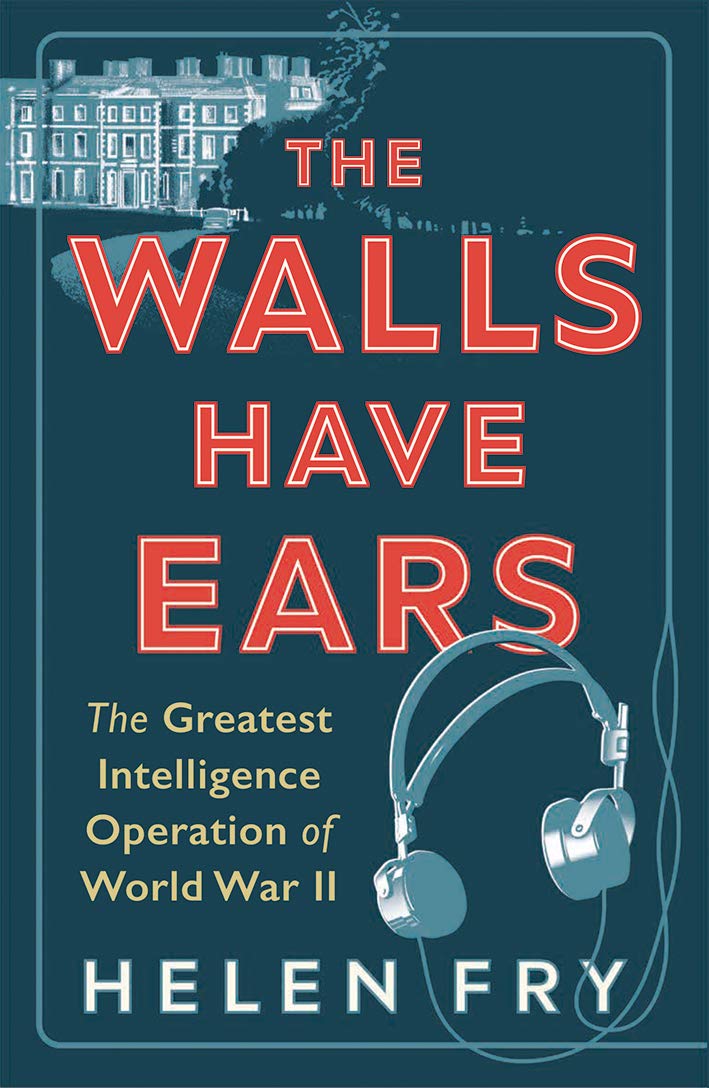
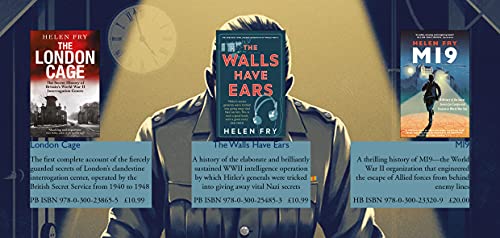
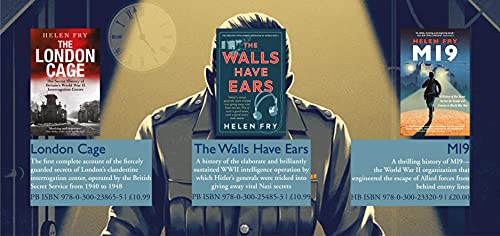

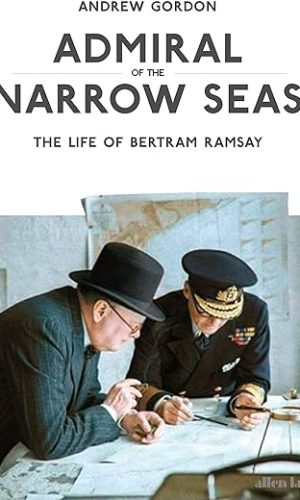





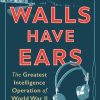
by P. R. Pearson
A first class read and work, revealing the thoughts and conversations of the German elite held captive during the Second World War. Highly recommended.
by Patricia Burr
I had so enjoyed listening to Helen Fry at the excellent Chelsea History Festival that I was interested in reading The Walls Have Ears. ItI did not disappoint. I was warmed by the British low key approach to lulling the prisoners into revelations by wining and dining them and by appearing rather stupid in the interviews so
However I rather thought that the early information gathered fromrescued u-boat sailors and downed airmen would have been more helpful than that gathered from the generals at the end of the war – when we had in effect already won..
by Patricia, Norfolk
I downloaded this book after I had finished reading a novel by Jules Wake called “The Secrets of Latimer House”, which did not delve very deeply into the secrets, but which awakened my interest. Ms Wake referred to “The Walls have Ears” as being one of the books she used for her research, and I wanted to know more.
This book, “The Walls have Ears” was deeply researched from material that has only recently become declassified as it has been top secret and I found it fascinating, full of facts so I shall probably read it again. When enemy airmen, soldiers and seamen of all ranks were captured, they were brought to one of several prisons where the living accommodation of the prisoners was bugged with microphones. The intelligence that was gathered in this way is said to have shortened the war by two years, by learning secret information about weapons and secret codes etc. They did not resort to torture, and many of the prisoners thought that the British were too stupid to bug the cells and felt able to talk amongst themselves about details that would prove useful to the Allies. Even small snippets were used, and fed back to the prisoners when questioning them so that they would believe that the Allies knew more than they actually did. Stool pigeons were also used, German speakers masquerading as prisoners, planted in the cells to try and encourage their cell mates to talk. Many German Jew refugees were used in these prisons and helped to translate the conversations heard, all of which were documented.
Frustratingly though, if any information was gathered from the prisoners about atrocities committed, the Government for various reasons were not able to use it to bring those responsible to justice.
An excellent book, highly recommended.
by Cameron Cullen
Information in WW2 was gathered by listening to Nazi staff, particularly the captured generals. Sometimes their arrogance is manifest, though it became their undoing. They spout all manner of views, still trapped in delusions of supremacy. Heavy stuff at times. For the casual reader then, not the best book on this subject. The cover suggests something rather more encompassing that it can be. That said, to date there aren’t many other options. It’s a sprawling subject. Try condensing that into a book, and it becomes bitty. It’s a good overview. The only improvement possible could have been to extend it further. It’s an interesting book and worth reading for several nuggets unpublished elsewhere.
by A. Zeyfert
Everybody knows about Bletchley Park nowadays. This is another amazing story from those times which has never been told. My only complaint is that it clearly does not tell the full story. This is not the fault of the author. She has done her research thoroughly and made it into an absorbing account which held my attention from beginning to end. Perhaps more details will surface (or be declassified) in the future, and I look forward to reading an amplified second edition.
As an example, one wonders why the details of Rudolf Hess’s mission are still being kept secret after so many years? One can only speculate…
by Athan
Greek TV in the seventies was not exactly flush with cash, so I grew up watching re-runs of TV series about WWII, black and white movies about WWII and sometimes even the occasional feature movie about WWII; from there, I progressed to the oeuvre of one Ian Fleming and even took the odd history elective about those times when I went to college. My fascination regarding the period remains undiminished, so I fully expected “The Walls have Ears” to be very much my cup of tea. In fact, I packed it along for my Christmas holidays back home, thinking I’d leave it behind for my dad to read, whose village in Northwestern Greece the Germans burnt twice.
I’m sad to report it’s more of a dig into the archives than a story with a plot to it. I’d have expected the author to have done some additional fieldwork, to have tracked down some survivors from the period, to have woven all this fascinating material into something of a narrative.
With the exception of Fritz Lustig (father of BBC journalist Robin Lustig) I don’t think anybody was successfully interviewed for this. It’s very very dry.
So, some 48 hours after having finished “The Walls have Ears,” I can say I have forgotten the names of all the German officers that feature, if not the fact that they had split into two factions, the pro-Nazi and the anti-Nazi. I’m also not at all surprised to hear that they were petty or that they knew about the atrocities surrounding the Holocaust.
This book never came alive for me, but perhaps I’m not familiar enough with the genre, what can I say. I did my dad a favor and brought it back to London.
One name does stand out, that of Colonel Kendrick, spymaster extraordinaire. I’ll have to visit Trent Park at some point to see for myself where all this eavesdropping took place. After 30 years of taking the blue line and having a quiet laugh with myself about where it ends, perhaps by 2022, when the museum is expected to open, it might be time I took my inaugural trip to Cockfosters.
by teleview
Only a few chapters in, but I’m hooked on this one!